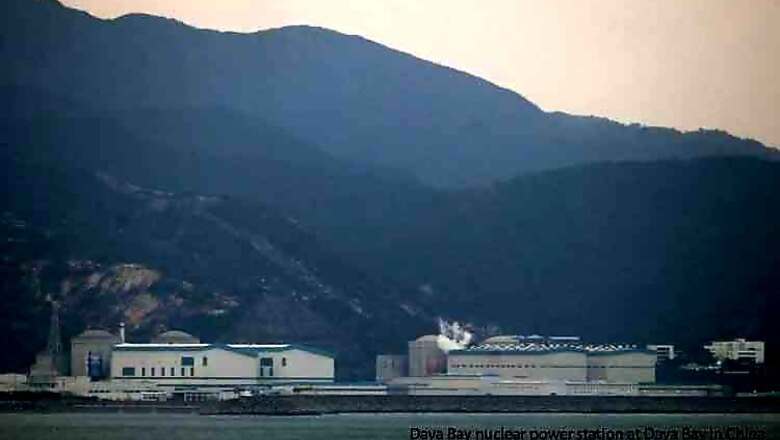
views
London: Britain on Wednesday signed a landmark nuclear deal with China to build the UK's first atomic power plant since the 1980s, during the current visit of President Xi Jinping in London.
Prime Minister David Cameron announced the agreement between EDF and China General Nuclear Power Corporation (CGN) to build a nuclear power plant at Hinkley Point, Somerset. The state-owned EDF said the final cost would be 18 billion pounds with state-owned CGN to pay 6 billion pounds for one-third of it.
"This is a historic deal which will lead to affordable power," Cameron told reporters at Downing Street after his meeting with the Chinese leader. He noted: "A strong relationship is in both our countries' interests not just because it brings investment and jobs and higher living standards for our peoples - vital though these things are.
"The more we trade together, the more we have a stake in each other's success and the more we understand each other, the more we can work together to confront the problems that face our world today.
"The stronger the relationship between our countries, the more we will be able to have a serious dialogue. We may not always agree, but we can discuss issues openly and constructively," he said.
More than 30 billion pounds worth of deals between the UK and China will be struck during the four-day visit. The agreement also set up a wider UK partnership to develop new nuclear power stations at Sizewell and Bradwell. While they have reached 'Strategic Investment Agreements' for all three plants, only Hinkley has a target date - it is supposed to start generating in 2025.
The UK and China have also pledged not to conduct cyber-espionage to steal commercial secrets from one another among a series of pacts signed on Wednesday.
The agreement is the first time that Britain and China have committed to work together on cyber security. At the joint press conference, the BBC questioned Xi on the Communist giant's deeply troubling record on human rights. "Coming to the human rights issue, China attaches great importance to human rights. We have found a path suited to China's conditions. There is always room for improvement in the world.
China is ready to increase co-operation with UK and other countries over human rights," Xi responded. He also defended China's steel policy which has been blamed by steel firms like Tata Steel for recent job losses.
Xi said, "I want to answer the steel question. The world is seeing an oversupply (of steel) following the financial crisis. China also has overcapacity. We have taken a series of steps (to remedy this). We have cut 700 m tonnes of production capacity. You can imagine the task of finding jobs for those workers.
"The UK is an important partner for China. Our investment in the UK reached 12.8 bn yuan by 2014. Our future investments will create further jobs. We want to avoid protectionist measures," he said.
The meeting with Cameron followed a gala banquet at Buckingham Palace last evening where Kate, the Duchess of Cambridge, proved a hit with her striking red dress and diamond tiara borrowed from Queen Elizabeth II. Xi's milestone UK trip is dominating discussion on Chinese micro-blogging site Weibo, where it has been the biggest trending topic for three days.
Prince William and Kate also met Xi and his wife Peng Liyuan at Lancaster House in St James' Palace on Wednesday. The royal couple joined the visitors at a creative industry event to celebrate cultural collaboration between the UK and China.
Xi and Peng also visited Imperial College, London with the Duke of York and Chancellor George Osborne to see robotic arms that carry out surgical operations on patients. The Bank of England has signed an agreement with the People's Bank of China to renew a currency swap line worth up to 35 billion pounds over the next three years.
In recent years, the City of London has become the largest centre of trading in China's Renminbi currency outside Asia. King's College is also launching collaborations on health with partners in China for research and training in medicine, dentistry and nursing.




















Comments
0 comment